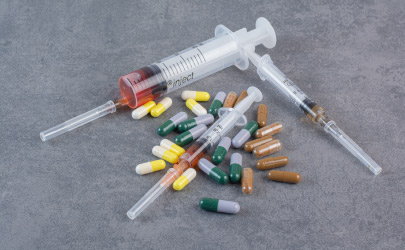The Rising Demand for Orpathys in Asia-Pacific: Market Dynamics and Competitive Landscape

“The Asia-Pacific Orpathys drug market is poised for significant growth, driven by the increasing incidence of non-small cell lung cancer (NSCLC) and the rising demand for targeted therapies. Orpathys, a treatment for advanced NSCLC with specific genetic mutations, has gained traction due to its effectiveness in improving patient outcomes. The drug is primarily available in China, where it was developed, but is gradually expanding to other markets in the region as regulatory approvals are secured.
The Asia-Pacific market benefits from a large population base and an increasing focus on personalized medicine, which makes Orpathys particularly appealing for treating genetic mutations in cancer patients. However, the market faces challenges such as high drug costs, limited availability in some countries, and regional disparities in healthcare access. Competitive pressures from other immunotherapies and targeted treatments, as well as regulatory hurdles, could influence the market's growth trajectory. Nevertheless, strategic partnerships, increasing healthcare investments, and awareness of personalized cancer therapies are expected to fuel market expansion across the region. "
The Asia Pacific Orpathys drug market was valued at USD 101 million in 2023 and is projected to reach USD 337 million by 2030, with a compound annual growth rate (CAGR) of 16.1% from 2025 to 2030.
China plays a crucial role in this development, as it was the first country to approve Orpathys. The drug’s addition to China's National Reimbursement Drug List (NRDL) has made it more accessible for patients, boosting both sales and awareness. There’s also been a notable improvement in diagnostic capabilities, with a strong focus on biomarker testing, which helps identify more patients who could benefit from this treatment.
Also, governments and healthcare providers across the Asia-Pacific region are investing more in precision medicine and oncology infrastructure. This, coupled with the region’s rapid urbanization, rising disposable incomes, and better healthcare access, positions Asia-Pacific as a key player in the market for savolitinib.
The high incidence of non-small cell lung cancer (NSCLC) with MET exon 14 skipping mutations drives demand for Orpathys in the region.
The Asia-Pacific region faces a major challenge with non-small cell lung cancer (NSCLC), which represents a significant portion of lung cancer cases worldwide. A notable factor in this is the presence of MET exon 14 skipping mutations, which are particularly common in Asian populations compared to those in the West. Given that lung cancer is the top cause of cancer-related deaths in this area, there's an urgent demand for targeted treatments like Orpathys. Additionally, advancements in early detection and diagnostic tools underscore the critical need for effective and personalized treatment options for many patients.
Increased healthcare spending and focus on advanced cancer therapies enhance accessibility to innovative treatments.
Governments in the Asia-Pacific region, especially in countries like China, Japan, and South Korea, are putting significant resources into improving healthcare infrastructure to tackle the challenges posed by cancer. Their public health initiatives emphasize the importance of early diagnosis and ensuring that innovative treatments are accessible. A key focus has been on funding precision oncology, which includes targeted therapies such as Orpathys, making it easier for patients with non-small cell lung cancer (NSCLC) to get the care they need. While these investments are making a noticeable difference in urban areas where advanced medical facilities are available, efforts are also being made to reach underserved regions, ensuring that more people can benefit from these advancements.
Inclusion in national reimbursement lists, like China’s NRDL, makes Orpathys more affordable and accessible.
In 2023, Orpathys was included in China’s National Reimbursement Drug List (NRDL), which is a big win for patients as it lowers their costs and makes it easier for them to access treatment. This kind of reimbursement program is also seen in other Asia-Pacific countries like Japan and South Korea, where it plays a crucial role in making medications more affordable. By helping to ease the financial strain on patients, these programs also motivate healthcare providers to recommend more innovative treatments. Overall, by lightening the economic load, they are paving the way for more patients with NSCLC to benefit from Orpathys throughout the region.
Partnerships like HUTCHMED and AstraZeneca ensure efficient commercialization and distribution in the region.
HUTCHMED's partnership with AstraZeneca has been key to successfully bringing Orpathys to market in the Asia-Pacific region. With AstraZeneca’s well-known oncology products and solid presence in these markets, they help ensure that Orpathys reaches patients effectively and that awareness is built around it. This collaboration also makes the most of local knowledge to navigate regulatory processes and connect with patients. By working together, global and regional players create a more straightforward path for introducing and adopting Orpathys, giving them a strong edge in the market.
Streamlined regulatory pathways in Asia-Pacific countries accelerate the availability of targeted cancer therapies.
Countries in the Asia-Pacific region, particularly China and Japan, have been speeding up the approval processes for innovative drugs. This is great news for Orpathys, as these quicker pathways have helped get new treatments evaluated and on the market faster, allowing patients to access them in a timely manner. Regulatory authorities in this area are also embracing real-world evidence and offering conditional approvals, which are particularly beneficial for patients with MET-driven NSCLC. Supportive policies are making it easier and quicker to bring targeted therapies to those who need them.
Competitive Landscape
Some of the major companies operating within the Orpathys (savolitinib) market are: AstraZeneca, HutchMed.